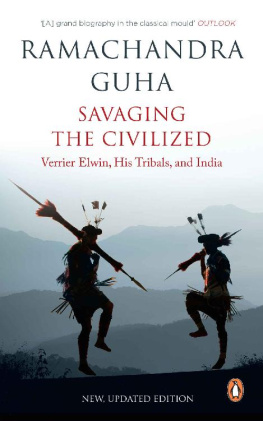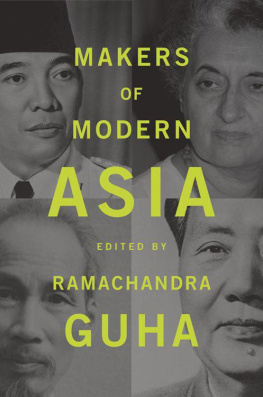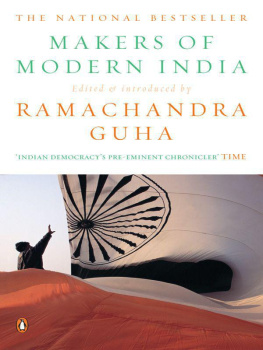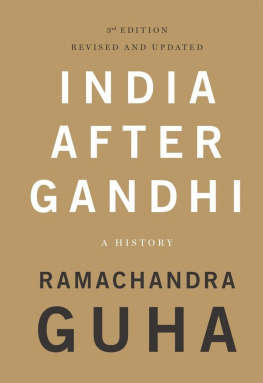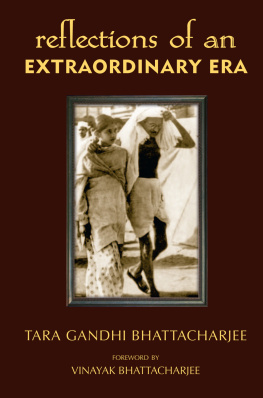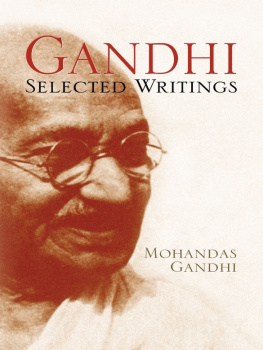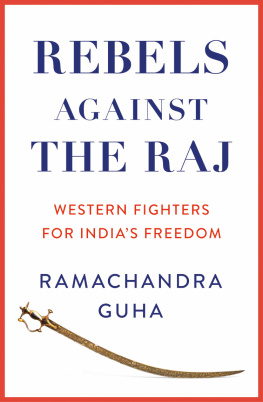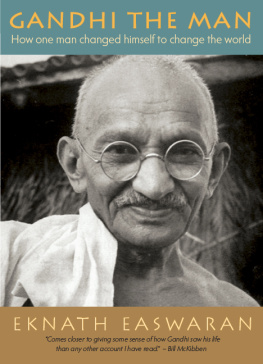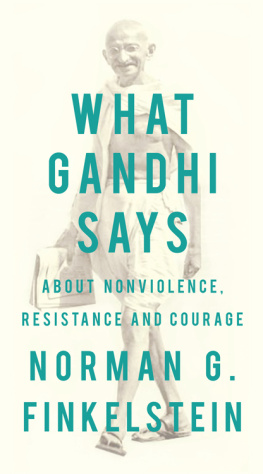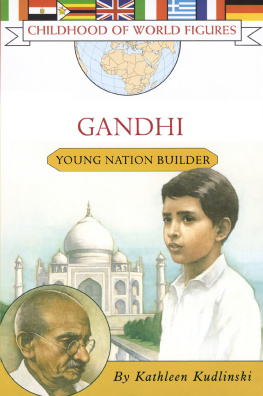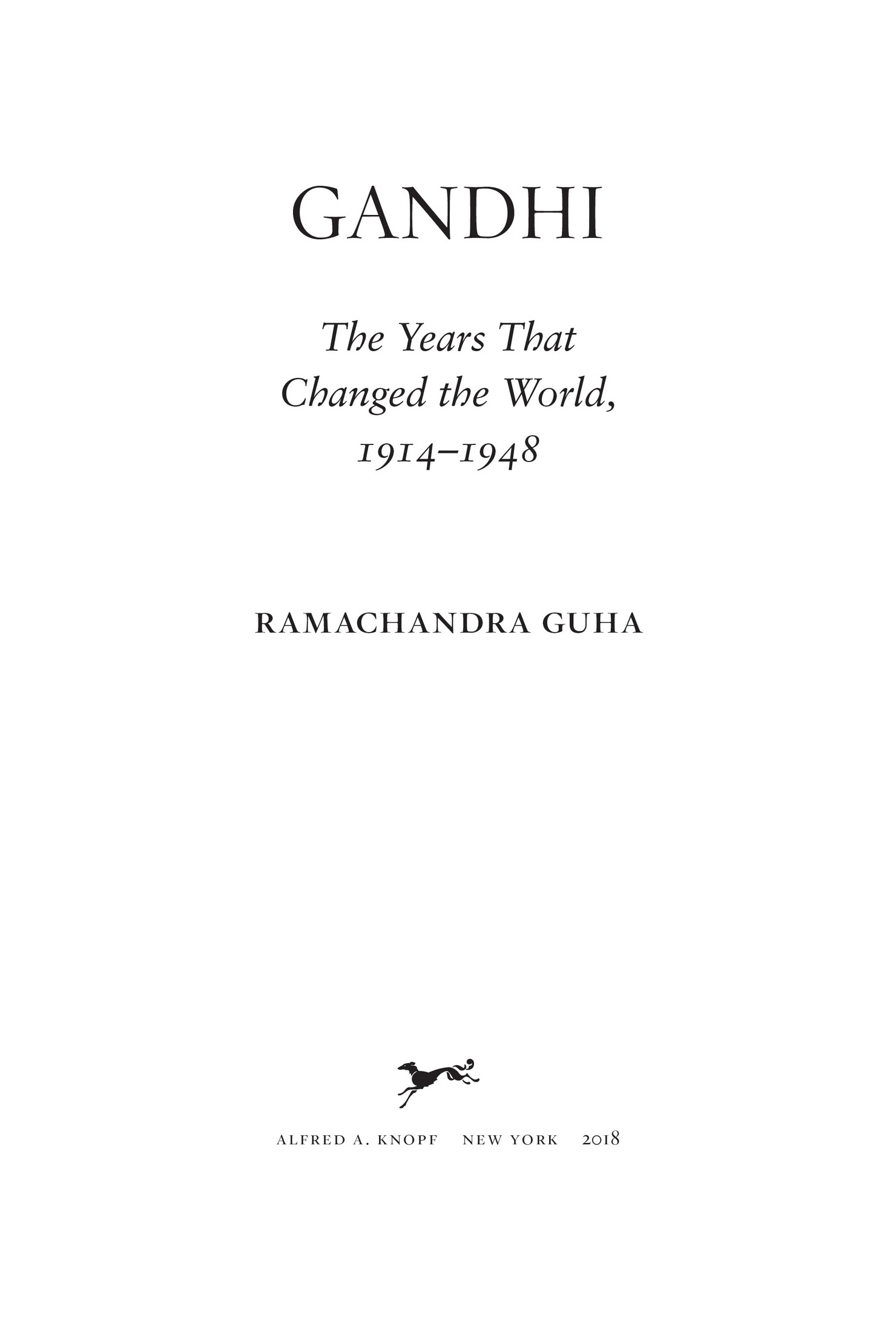ALSO BY RAMACHANDRA GUHA
History
The Unquiet Woods: Ecological Change and Peasant
Resistance in the Himalaya
Environmentalism: A Global History
The Use and Abuse of Nature (with Madhav Gadgil)
A Corner of a Foreign Field: The Indian History of a British Sport
How Much Should a Person Consume? Thinking Through the Environment
India After Gandhi: The History of the Worlds Largest Democracy
Biography
Savaging the Civilized: Verrier Elwin, His Tribals, and India
Gandhi Before India
Essays
An Anthropologist among the Marxists and Other Essays
The Last Liberal and Other Essays
Patriots and Partisans
Democrats and Dissenters
Anthologies
Social Ecology
Natures Spokesman: M. Krishnan and Indian Wildlife
The Picador Book of Cricket
Makers of Modern India
THIS IS A BORZOI BOOK
PUBLISHED BY ALFRED A. KNOPF
Copyright 2018 by Ramachandra Guha
All rights reserved. Published in the United States by Alfred A. Knopf, a division of Penguin Random House LLC, New York. Originally published in hardcover in India by Allen Lane, an imprint of Penguin Random House Ltd., Gurugram, in 2018, and simultaneously published in Great Britain by Allen Lane, an imprint of Penguin Books Ltd., a division of Penguin Random House Ltd., London.
www.aaknopf.com
Knopf, Borzoi Books, and the colophon are registered trademarks of Penguin Random House LLC.
Library of Congress Control Number: 2018953456
ISBN9780385532310
Ebook ISBN9780385532327
Cover image: Mahatma Gandhi, ca. 1937. akg-images / GandhiServe India
Cover design by Carol Devine Carson
v5.3.2
a
For Suja
Albert Einstein, writing about Gandhi in 1944:
A leader of his People, unsupported by any outward authority, a politician whose success rests not upon craft nor the mastery of technical devices, but simply on the convincing power of his personality; a victorious fighter who has always scorned the use of force; a man of wisdom and humility, armed with resolve and inflexible consistency, who has devoted all his strength to the uplifting of his people and the betterment of their lot; a man who has confronted the brutality of Europe with the dignity of the simple human being, and thus at all times rises superior.
Generations to come, it may be, will scarce believe that such a one as this even in flesh and blood walked upon this earth.
Lord Willingdon, Viceroy of India, writing about Gandhi in 1933:
Its a beautiful world if it wasnt for Gandhi who is really a perfect nuisance.At the bottom of every move he makes which he always says is inspired by God, one discovers the political manoeuvre.I see the American Press is saying what a wonderful man he is in that if he threatens to starve there is a terrible hullaballoo over here. Its true, but the fact is that we live in the midst of very unpractical, mystical, and superstitious folk who look upon Gandhi as something holy, whereas I look upon him as the biggest humbug alive.
Gandhi, writing about himself in 1934:
I make no hobgoblin of consistency. If I am true to myself from moment to moment, I do not mind all the inconsistencies that may be flung in my face.
Contents
Preface
I
When Mohandas K. Gandhi landed in Bombay in January 1915, he was already forty-five, and had been away a long time from his homeland. Gandhi grew up in two small chiefdoms in Gujarat, insulated from the social and political changes taking place in British India. He studied law in London, and then, after failing to establish himself at the Bar in Bombay and Rajkot, moved to South Africa, where he developed a flourishing legal practice before turning to activism and social work.
The two decades that Gandhi spent in the diaspora were crucial to his intellectual and moral development. Living outside India, he came to appreciate the enormous linguistic and religious diversity of his homeland. It was in South Africa that he forged a regimen of extreme personal austerity, experimenting with different foods and methods of healing. It was here that he first thought of, and applied, the technique of non-violent resistance known as satyagraha.
Gandhis years in South Africa were important to him, personally, yet his years in India were of far greater historic import. In South Africa, he sought to represent the Indian diaspora, roughly 150,000 people in all. In his homeland, he strove to become the leader of its 300 million people. In South Africa, he worked only in towns and districts where Indians were present; in India, he made his ideas known in every corner of the subcontinent. In one place, he led a relatively small community of migrants; in the other, he became the central figure in the largest colony of the worlds greatest Empire.
The India that Gandhi returned to in 1915 was by no means politically quiescent. The Indian National Congress, set up in 1885, had a Moderate faction, which politely and respectfully petitioned the British to grant Indians greater rights; and an Extremist faction, which resorted to street protest and the burning of British cloth to demand political and economic independence for India. Whereas the Congress professed to represent all Indians regardless of caste or creed, the Muslim League was established in 1906 specifically to protect the interests of the subcontinents largest religious minority. There were also some revolutionary groups, small but very active, who sought through bombings and assassinations to scare the British out of India.
These political groups and tendencies were resolutely urban as well as middle class. They had no roots in the villages. After his return to India in 1915, Gandhi took this city-based and elite-dominated opposition to British rule and made it into a mass movement, reaching deep into the countryside, bringing in millions of peasants, workers, artisans and women. The techniques Gandhi used, the travels he undertook, and the friendships he forged to accomplish this transformation, form a major part of the narrative. This biography of Indias most famous patriot is inevitably also a history of the most important political party of the time, the Indian National Congress, and of the freedom movement itself.
To deliver India from British rule was by no means Gandhis only preoccupation. The forging of harmonious relations between Indias often disputatious religious communities was a second. The desire to end the pernicious practice of untouchability in his own Hindu faith was a third. And the impulse to develop economic self-reliance for India and moral self-reliance for Indians was a fourth.
These campaigns were conducted by Gandhi in parallel. All were to him of equal importance. In 1933, he wrote to a close friend that my life is one indivisible whole.I cant devote myself entirely to untouchability and say: Neglect HinduMuslim unity or swaraj. All these things run into one another and are inter-dependent. You will find at one time in my life an emphasis on one thing, at another time on another. But that is just like a pianist, now emphasizing one note and now another. But they are all related to [one] another.



